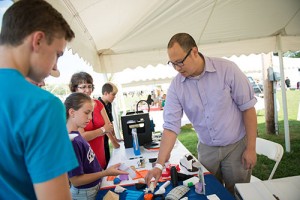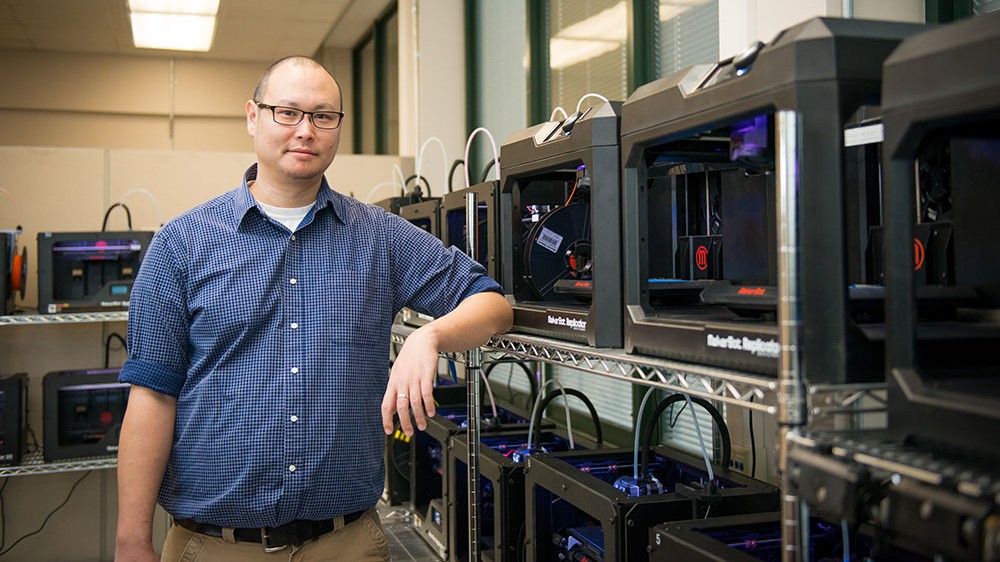
MakerBot pro expands access to 3D technology
Aaron Nelson
Position: Instructional Support Technician, MakerBot Innovation Center
Education: Master of Fine Arts (Metals), University of Massachusetts at Dartmouth; Bachelor of Fine Arts (Artisanry), Oklahoma State University
Website: aaronmakingart.com
How did you become involved with 3D technology?
I have an MFA in metals, and my thesis work was in physical computing – interactive objects that use microcontrollers to talk to the world. I started working at the University of Arkansas’ School of Architecture as a technician in their digital fabrication lab, and eventually worked my way up to director of technology. After I heard about the Innovation Center and 3D printing initiative here, I decided this is what I wanted to do.
Where do you see this technology going?
This is a term that gets bandied about a lot, but I’m a firm believer that it’s the second industrial revolution. There was a big machine technology drain in the ’80s and ’90s, when all of the manufacturing went overseas. This is a way of pulling it back to the United States.
What’s the coolest thing you’ve seen come out of a 3D printer?
The latest thing I’ve seen is a 3D-printed replacement trachea. In the future, we’ll see 3D printed organs. They can essentially take a culture of stem cells from your body, build an organ out of your own cells, and transplant it back into you, which will do away with things like organ rejection and donor matching. It’s really easy to customize things, especially in the advanced biomedical fields where everyone’s body is different.

What is the main function of the MakerBot Innovation Center?
Our job is to democratize student, faculty, and staff access to this technology, and to provide educational outreach by running short courses. Together, the Hudson Valley Advanced Manufacturing Center and the MakerBot Innovation Center are the 3D printing hub of the Hudson Valley. I want to encourage people to take advantage of this facility. I’ve been at four different universities now, and this is the only place that has the level of equipment we do here.
How do you benefit from working with students?
Since we host so many students from different majors, my job is to be a facilitator. They come with ideas and I guide the technical workings behind them. I also manage the student interns. They’re a very bright and energetic group. Seeing their excitement and their wide-eyed, open-to-everything attitude is really fun for me. I can’t give them enough praise. Without them, this place wouldn’t run.
Do you keep a foot in the art world?
My work has transitioned since I’ve been here. I’ve been exploring the possibilities with parametric modeling and 3D printing. I like to program and code, and to use those skills in the 3D making world is something I haven’t had a lot of experience in. So my art is changing directions from being here. That’s really exciting to me.

